Research topics |
Activities |
Publications |
Collaborations |
Alumni |
Research topics
| Quark & lepton flavor phenomenology
Quark flavor and CP violation phenomena are described in the Standard Model by a total of 4 parameters of the Cabibbo-Kobayashi-Maskawa matrix and 6 quark masses. On the other hand, realistic Standard Model extensions contain additional parameters that are subject to strong constraints from precision flavor measurements. Our studies of such new physics effects focus on processes that are either rare or can be precisely predicted in the Standard Model. They are explored both model independently and in explicit new physics scenarios, predicting correlations among quark and lepton flavor observables, including CP violation as well as baryon and lepton number violation.
|
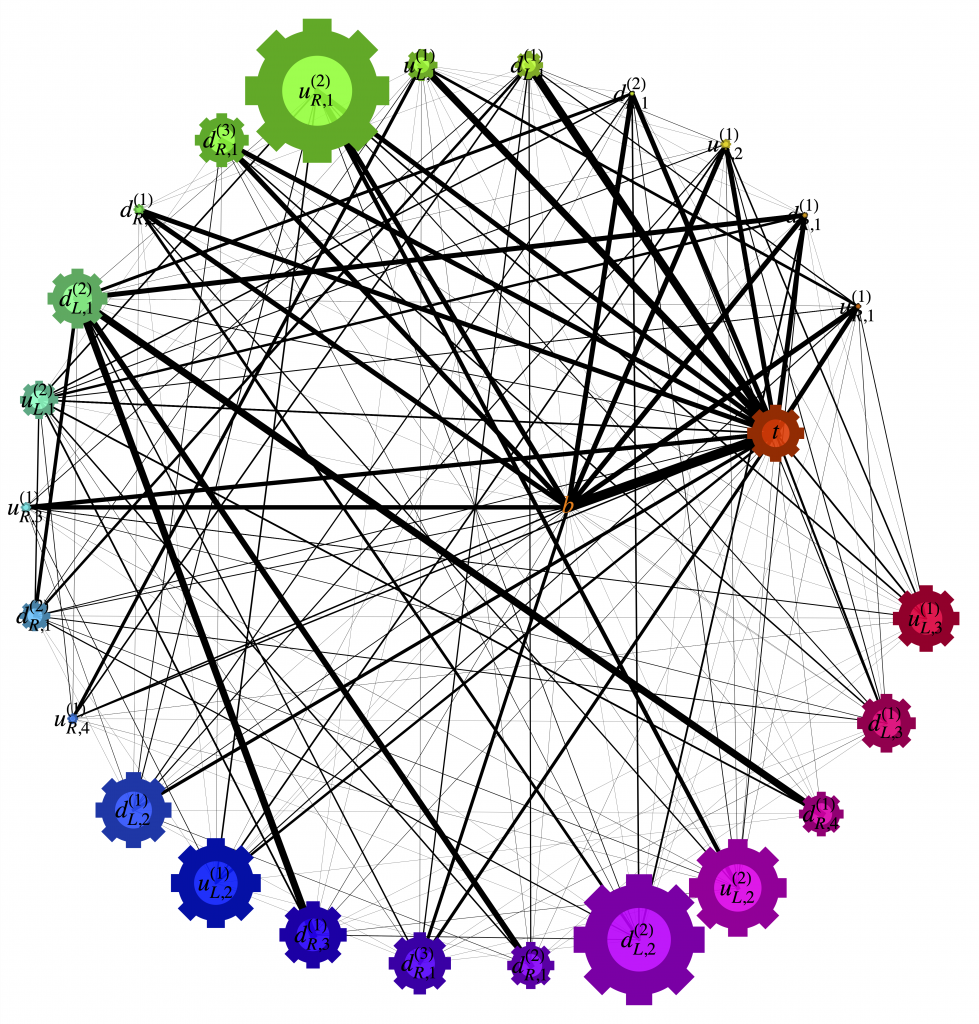 |
| Top and Higgs physics
The top quark and the Higgs boson are the heaviest known elementary particles. Due to their large coupling they exhibit an extreme sensitivity to dynamics at energies far above the electroweak scale of the Standard Model. As such they also serve as excellent probes of new physics. We study top quark and Higgs boson properties and processes, which are well predicted or very suppressed within the Standard Model, with the aim of disentangling possible beyond the Standard Model effects. These include collider signatures of hypothetical cosmological dark matter particles or light remnants of high scale gauge and matter unification.
Assoc. prof. dr. Miha Nemevšek
|
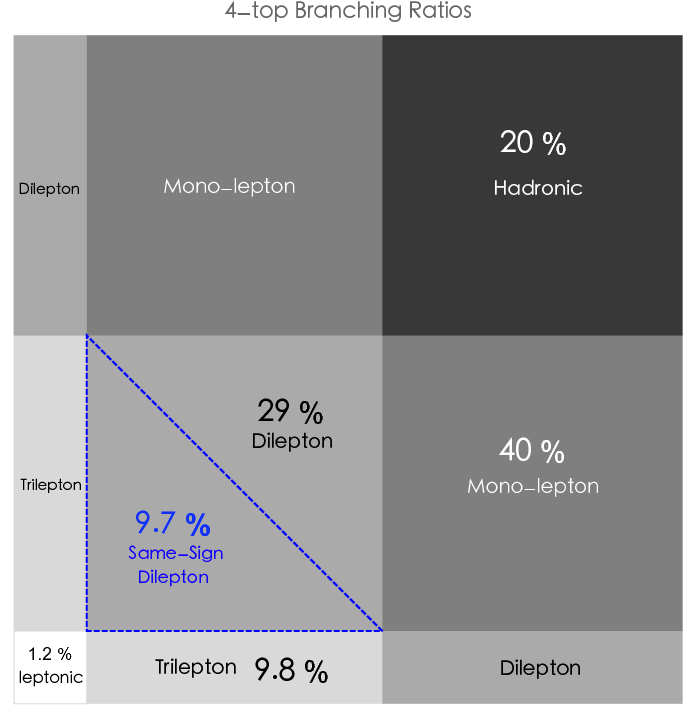 |
| Physics beyond the standard model
We are looking for signals of physics beyond the standard model, like proton decay, neutrino masses, heavy neutrinos at LHC, neutrino-less double beta decay, and flavor physics. We search for the signals of Dark Matter. The models we are studying are U(1) extensions of the SM, grand unified theories, left-right symmetric theories, with or without their supersymmetric extensions. We are interested in phenomenological and cosmological consequences of these ideas, as well as theoretical issues like spontaneous supersymmetry breaking and study of strongly interacting systems through the AdS/CFT correspondence.
|
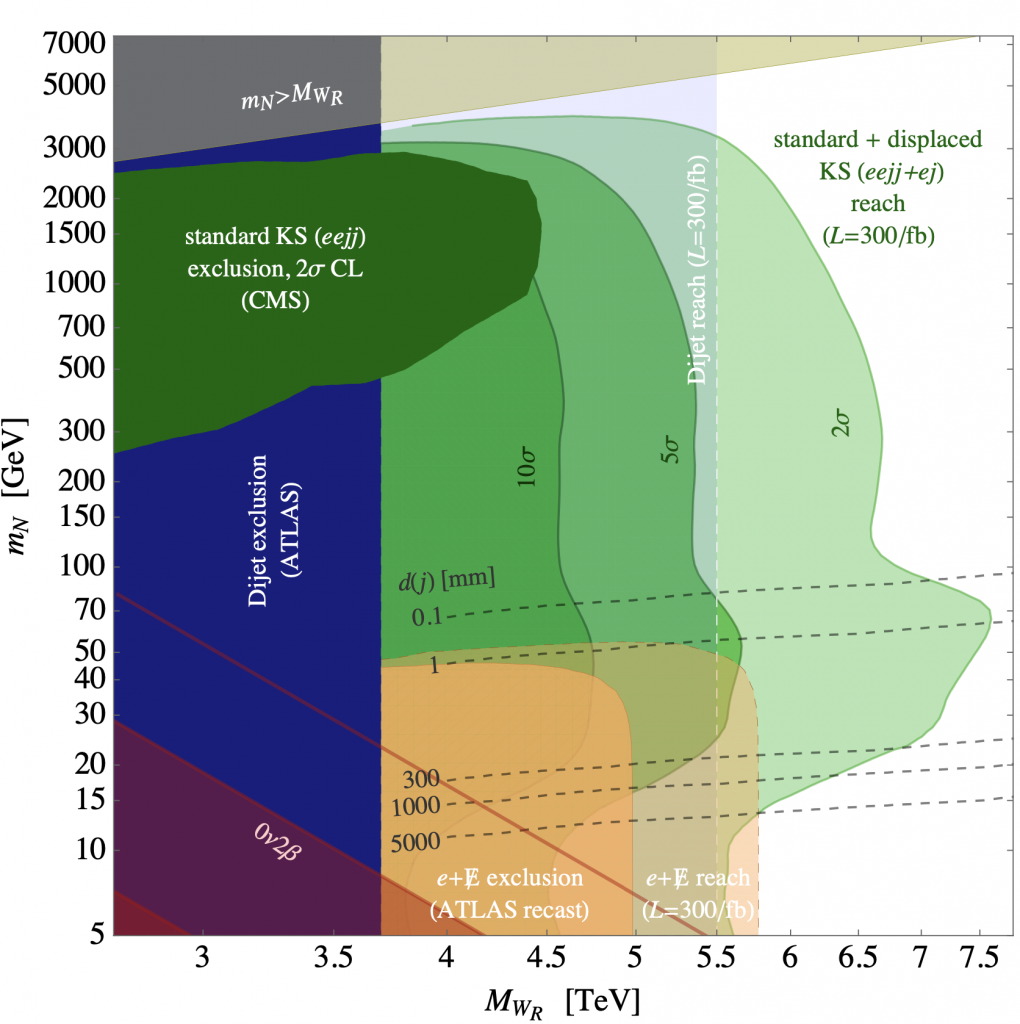 |
| Lattice QCD
We compute the hadron spectrum and study the interactions between hadrons from the first principles of quantum chromodynamics on the lattice. By simulating the scattering between hadrons, we determine the corresponding scattering phase shift. This lead to the first lattice determination of the mass and the width for a number of hadronic resonances in the light, strange and charm sector. Experimental candidates for the exotic hadrons often lie near thresholds, and we are performing pioneering simulations that take into account the effect of threshold on these states. The exotic charmonium-like XYZ states, which are candidates for mesonic molecules or tetraquarks, are of particular interest in light of recent experimental discoveries.
Prof. dr. Saša Prelovšek Komelj Assist prof. dr. Luka Leskovec
|
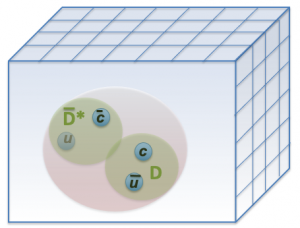 |
| Machine-learning approaches to high energy particle and astro-particle physics
In the last few years, machine learning tools have opened new avenues in particle physics data analysis. In particular, advances in unsupervised or semi-supervised techniques designed to be able to separate signal and background events in mixed samples. We use such machine learning techniques devise novel analysis and search strategies for high energy particle collider experiments as well as high energy cosmic ray observatories. In particular, we apply techniques from Bayesian generative statistical modeling to study collider events and extended atmosphere showers, inferring their underlying structure and dynamics directly from the data.
|
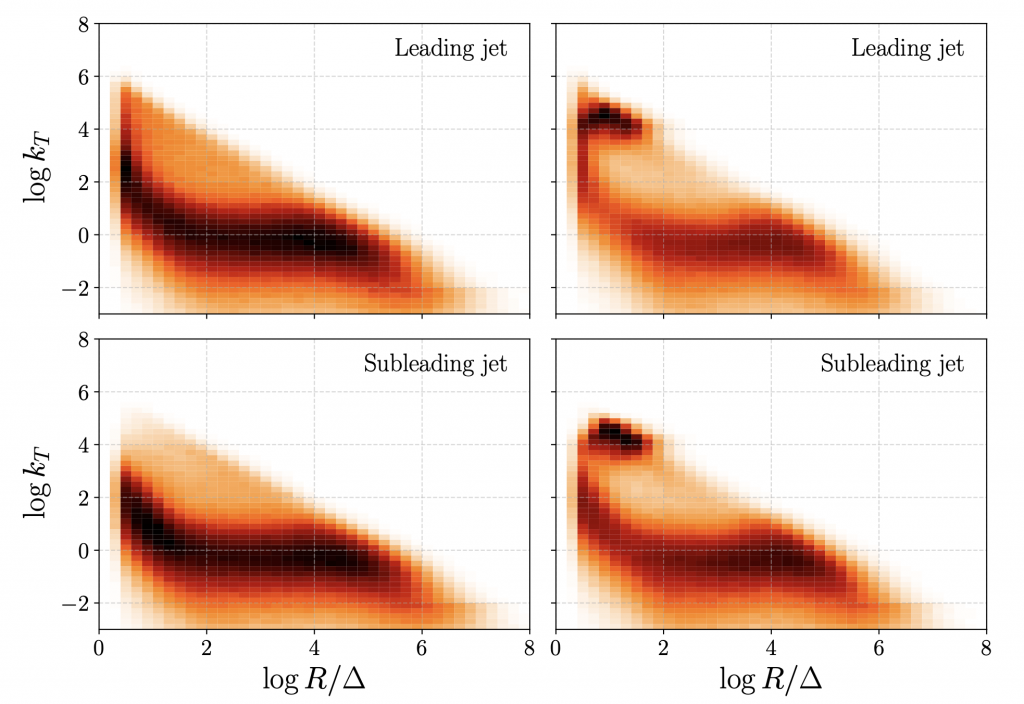 |
Activities
Weekly seminars
The weekly "Joint FMF-JSI high energy physics seminars" of the HEP Theory Group are normally held every Thursday at 10:15 in the tea room of the JSI F1 department. Calendar with all the events can be found here.
For speakers: Please consult the current agenda. Choose a free Thursday slot and notify your host. Exceptionally, an alternative day may be used as well (usually Mondays).
Subscribe to the seminar calendar via the following link: webcal://indico.ijs.si/export/categ/30.ics?from=-31d
Subscribe to seminar notifications: Use direct e-mail subscription or write to the group administrator.
Feodor Lynen Research Fellowship applications
The particle theory group at the Jozef Stefan Institute in Ljubljana, Slovenia invites outstanding young researchers from Germany to apply for a Feodor Lyden Research Fellowship position with prof. dr. Svjetlana Fajfer, who is a member of the Humboldt Network abroad. For further information, and to apply, please see the Feodor Lynen Research Fellowship webpages and contact us at hep-th@ijs.si.
Marie Curie Fellowship applications
The group offers support for Marie Curie Fellowships applications. The group hosted succesful MC alumni in the past and has experience with writing the proposal. Slovenia is a member of the Widening countries and therefore MC applications to IJS receive additional funding under the Widening scheme. Moreover, the Slovenian national agency offers individual grants for MC applications that were above the EU threshold but not funded. More information can be found through:
- H2020 Work Programme 2018-2020
- H2020 Guide for Applicants MSCA IF
- MSCA-Individual Fellowship Handbook 2019
To apply with the group, please contact us at hep-th@ijs.si or contact the individual members of the group on a relevant topic of research.
Scientific meetings organized by the group
- 2nd Training School COST Action COSMIC WISPers (CA21106), June 10 - 14 2024, Ljubljana, Slovenia (webpage).
- Brda 2023, Illusive physics beyond the standard model, October 11-13 2023, Medana, Slovenia (webpage)
- Ljubljana Summer School on Particle Physics and Cosmology, August 18 - September 2 2023, Ljubljana, Slovenia (webpage).
- Portorož 2023: Particle physics from Early Universe to Future Colliders, April 10 - 14 2023, Portorož, Slovenia (webpage)
- Brda 2022, Selected topics in high energy physics, astrophysics, and cosmology, September 28-30 2022, Medana, Slovenia (webpage)
- Portorož 2021: Physics of the Flavourful Universe, September 21 - 24 2021, Portorož, SloveniaPortorož 2021: Physics of the Flavourful Universe, September 21 - 24 2021, Portorož, Slovenia (webpage).
- Brda 2021: Selected topics in high energy physics, astrophysics, and cosmology, May 31 - 2 June 2021, Medana, Slovenia (webpage).
- Brda 2019: Selected topics in high energy physics, astrophysics, and cosmology, October 9 - 11 2019, Medana, Slovenia (webpage).
- Summer school on BSM particle physics and cosmology, August 26 - 31 2019, Ljubljana, Slovenia (webpage).
- Portorož 2019: Precision era in High Energy Physics, April 16 - 19 2019, Portorož, Slovenia (webpage).
- Brda 2017: Selected topics in high energy physics, October 11 - 13 2017, Brda, Slovenia (webpage).
- Portorož 2017: New physics at the junction of flavor and collider phenomenology, April 18 - 21 2017, Portorož, Slovenia (webpage).
- Brda 2016: Selected topics in flavor and collider physics, October 19 - 21 2016, Brda, Slovenia (webpage).
- Portorož 2015: Particle Phenomenology From the Early Universe to High Energy Colliders, April 7 - 10 2015, Portorož, Slovenia (webpage).
- From Strange through Charm and Beauty to the Top: Celebration of the career of Svjetlana Fajfer, April 16, 2014, Jozef Stefan Institute (webpage).
- Brda 2013: Selected Challenges in Particle Phenomenology, September 19 - 20 2013, Brda, Slovenia (webpage).
- Portorož 2013: Probing the Standard Model and New Physics at Low and High Energies, April 14 - 18 2013, Portorož, Slovenia (webpage).
- Brda 2011: Selected Challenges in Flavor Physics, September 15 - 16 2011, Brda, Slovenia (webpage).
- Portorož 2011: The Role of Heavy Fermions in Fundamental Physics, April 11 - 14 2011, Portorož, Slovenia (webpage).
Opportunities for student projects and theses
Selected Publications
|
Selected Collaborations
|
Alumni and former associates (subsequent affiliation)
- Prof. dr. Bojan Golli (retired)
- Dr. Luiz Vale Silva (Univ. of Valencia)
- Dr. Matej Pavšič (retired)
- Prof. Dr. Jure Zupan (Univ. of Cincinnati)
- Prof. Dr. Ilja Doršner (Univ. of Split)
- Dr. J. Julio (Indonesian Institute of Sciences)
- Dr. Jure Drobnak (Institute for Advanced Study, TU Munich)
- Dr. Admir Greljo (Univ. Bern)
- Dr. Ivana Mustać (Cosylab)
- Dr. Ivan Nišandžić, (Ruđer Bošković Institute, Zagreb)
- Dr. Timon Mede (Reactor Center, Josef Stefan Institute)
- Dr. Urša Skerbiš Štok (Pipistrel)
- Dr. Vasja Sušič (Univ. of Basel)
- Dr. Monalisa Patra
- Dr. Darius Faroughy (Univ. Zurich)
- Dr. Barry M. Dillon (Univ. Heidelberg)
- Dr. Victor F. Guada Escalona (Gen-I)
- Dr. Rajmund Krivec (retired)
- Dr. Manuel Szewc (Univ. of Cincinnati)
- Dr. Michele Tammaro (Univ. Pisa)
- Dr. Arman Korajac (Univ. Firenze)
- Dr. Blaž Bortolato
The group is funded in part by the Slovenian Research Agency (research core funding No. P1-0035).

